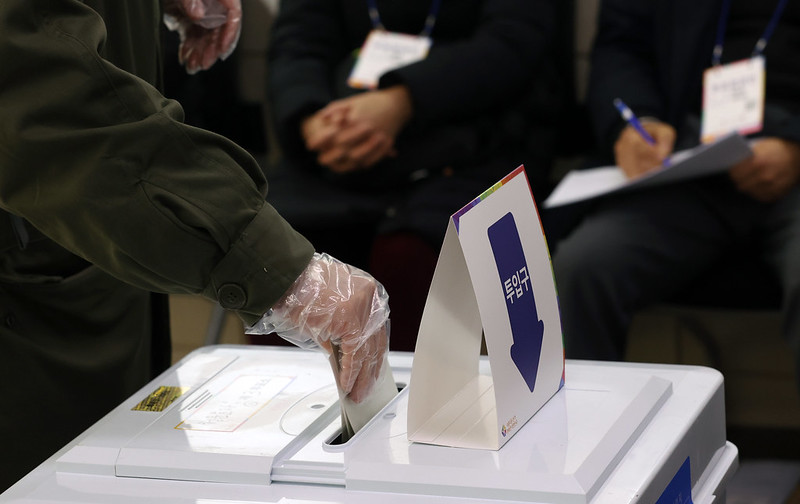Election after attempted martial law opens a new phase for democracy in South Korea
After the removal of conservative President Yoon Suk-yeol, the country will go to the polls tomorrow to pick a new president. If elected, the frontrunner Lee Jae-myung will lead a divided country, seeking a balance between social justice and growing polarisation. For Prof David C. Kang of the University of Southern California, this is a test of democratic stability, but South Korean society is not in decline.
Milan (AsiaNews) – The South Korean political landscape is seeking a new balance after the crisis that broke out after then President Yoon Suk-yeol declared martial law last December.
The unprecedented move was quickly blocked by the National Assembly, which led to Yoon's impeachment, opening a period of intense political turmoil. And tomorrow’s presidential elections is bound to redefine the country's path.
Lee Jae-myung, the candidate for the Democratic Party of Korea (DPK), appears to be way ahead of the conservative camp, which is split between Kim Moon-soo, who is running for the People Power Party (PPP), and Lee Jun-seok of the Reform Party (RP), but it is unclear whether his victory will help heal the deep divisions in South Korean society.
According to Professor David C. Kang, an expert in international relations at the University of Southern California in Los Angeles, the recent political upheavals in South Korea are clear signs of a polarised society.
“The right and the left live in two separate worlds, and have fundamentally different visions of things,” Kang notes.
The ideological gap is similar to that in the United States, but with a difference: “Society in South Korea is very stable and not in decline.”
In fact, the events following the declaration of martial law have “demonstrated the resilience of democratic institutions” after decades of dictatorial rule.
“South Koreans are going through a lot of changes. The older generation has gone from having thatched roofs to having bathrooms in their homes. They’ve experienced all sorts of social, cultural, political, economic changes, and they’re trying to adapt in real time,” Kang says.
Professor Kang points out that Yoon's conservative stance was often considered “even further right than many conservatives.” This extreme position, coupled with his isolation from key advisors and the perceived influence of outside elements, contributed to his downfall.
“We know of people at the top of the National Security Council, members of the government and the military, for example, who told him that he was going too far with Japan. But he ignored them.”
It cannot be ruled out that the influence of “right-wing YouTubers” and “shamans” close to the former president and his wife contributed to Yoon’s detachment from the reality of the country.
“But the trigger was frustration with the National Assembly that kept blocking what he wanted to do because it was in the hands of the opposition,” Lee’s DPK.
If he wins, Lee Jae-myung might usher in a shift towards the political centre, both domestically and in foreign policy.
“Lee is not as left-wing as other progressive presidents in the past. Even a conservative president would now return to centrist politics after the extremes reached by Yoon,” Kang says.
“Lee also probably will not take extreme actions, nor will he return to square one in domestic politics. South Korea is divided on gender issues, on economic inequality, like in the United States, but it is not clear what the solution to these problems is.”
Lee will also inherit a new situation in foreign policy. “Any decision might seem like a big change because Yoon was particularly unconventional. He was very close to the United States and Japan.
“Whoever is elected will have to repair relations with China, but it is not a given that he will move away from this totally pro-US and pro-Japan attitude, although it is hard to imagine the same enthusiastic approach towards Tokyo.”
While an overture towards North Korea is likely, South “Koreans in general are more in favour of engaging the North than the Americans,” Kang stresses, suggesting a pragmatic approach towards potential future summits.
One question remains: How will the younger generation evaluate the stability achieved so far? This group has not experienced the authoritarian past but is increasingly burdened by the problems of advanced economies (tight labour market for educated young people).
“Certainly, the bigger picture is that this is a test for (South) Korean democracy. It’s a long national process where (South) Koreans will have to figure out what to value.”







.png)










